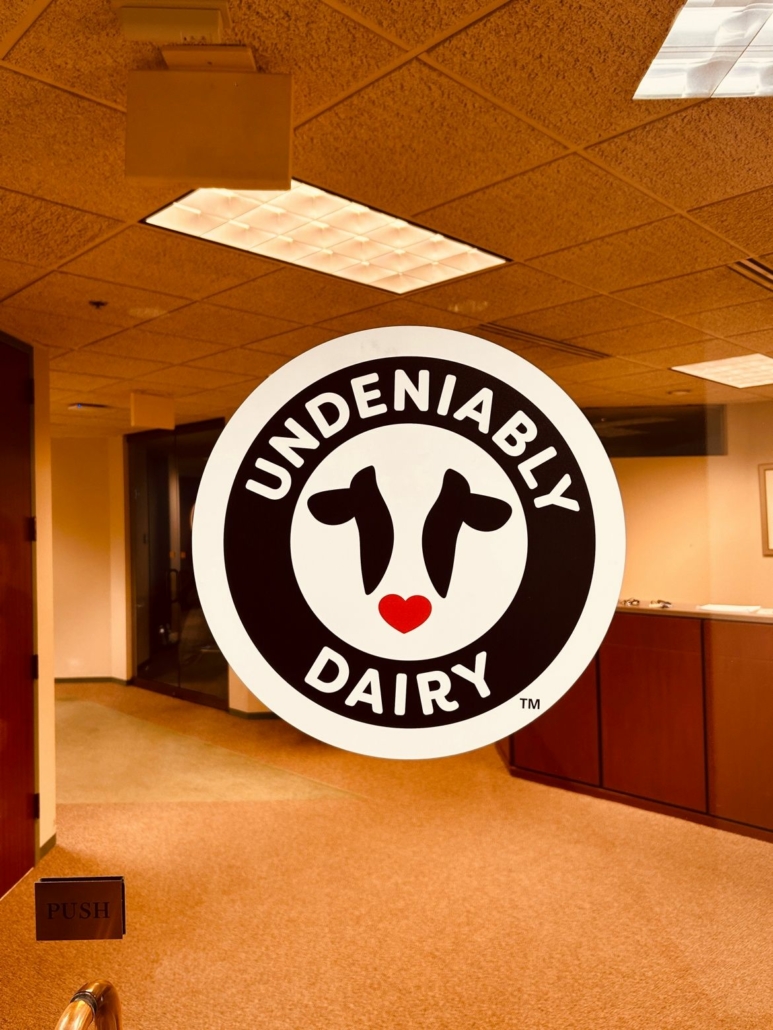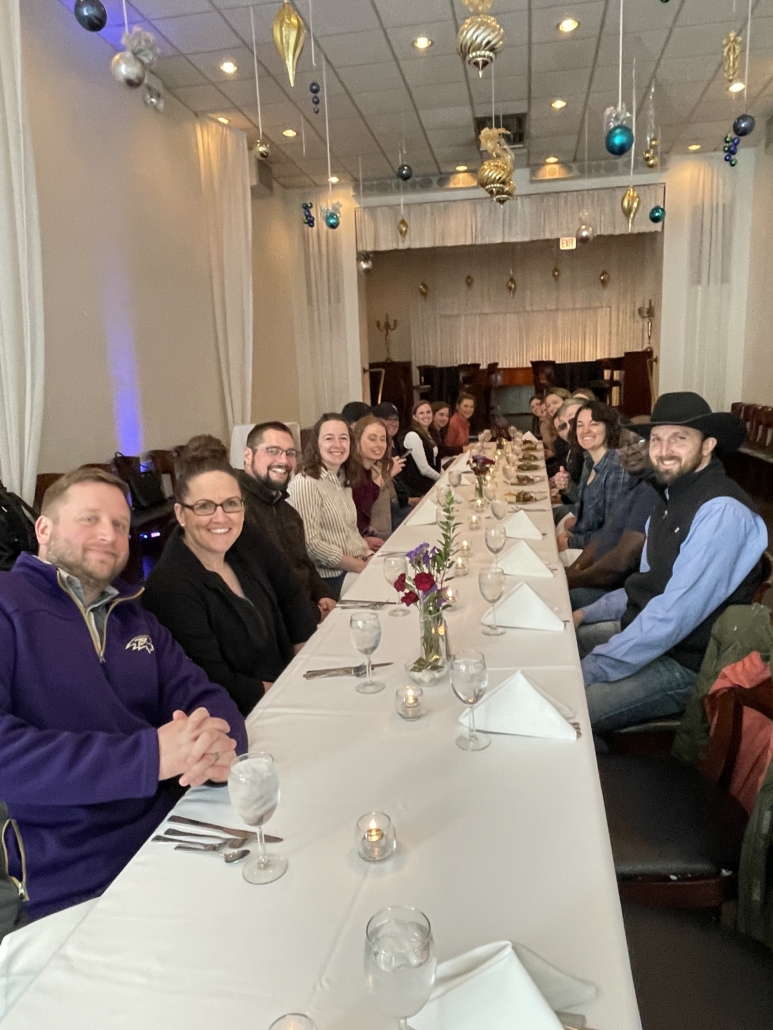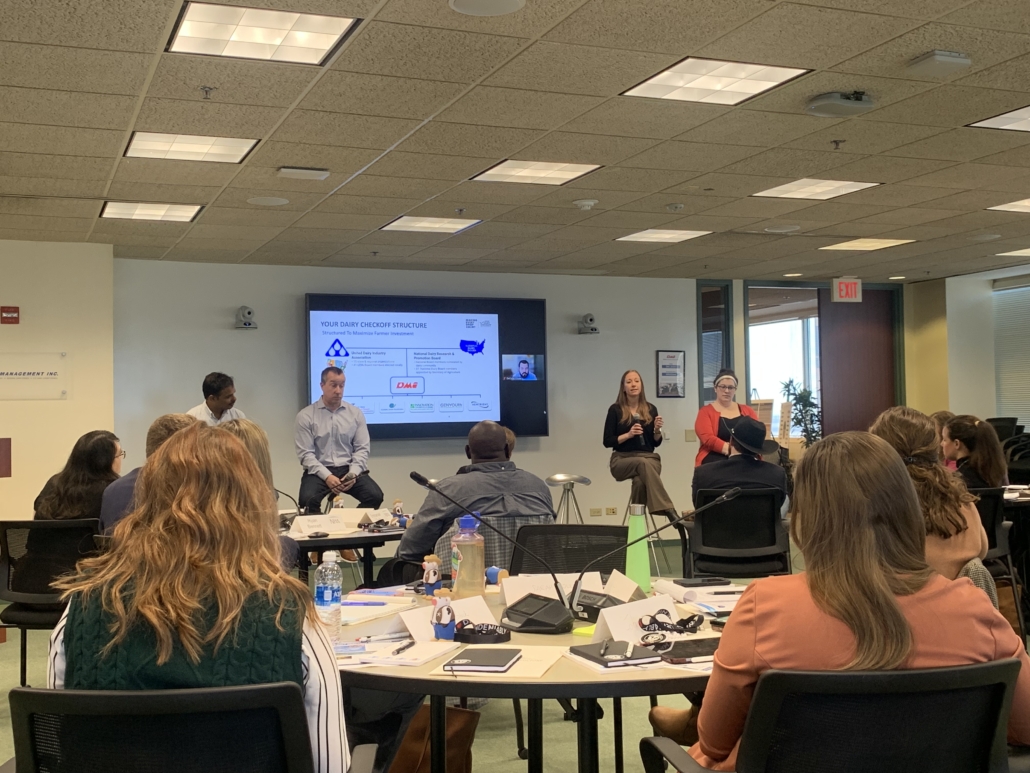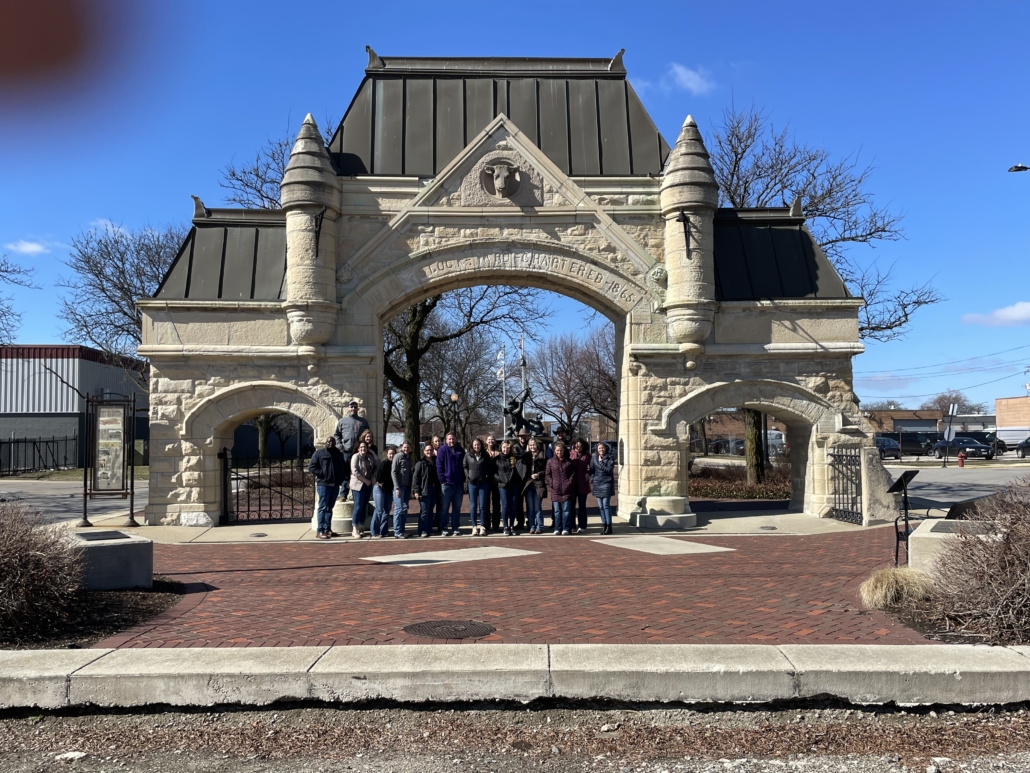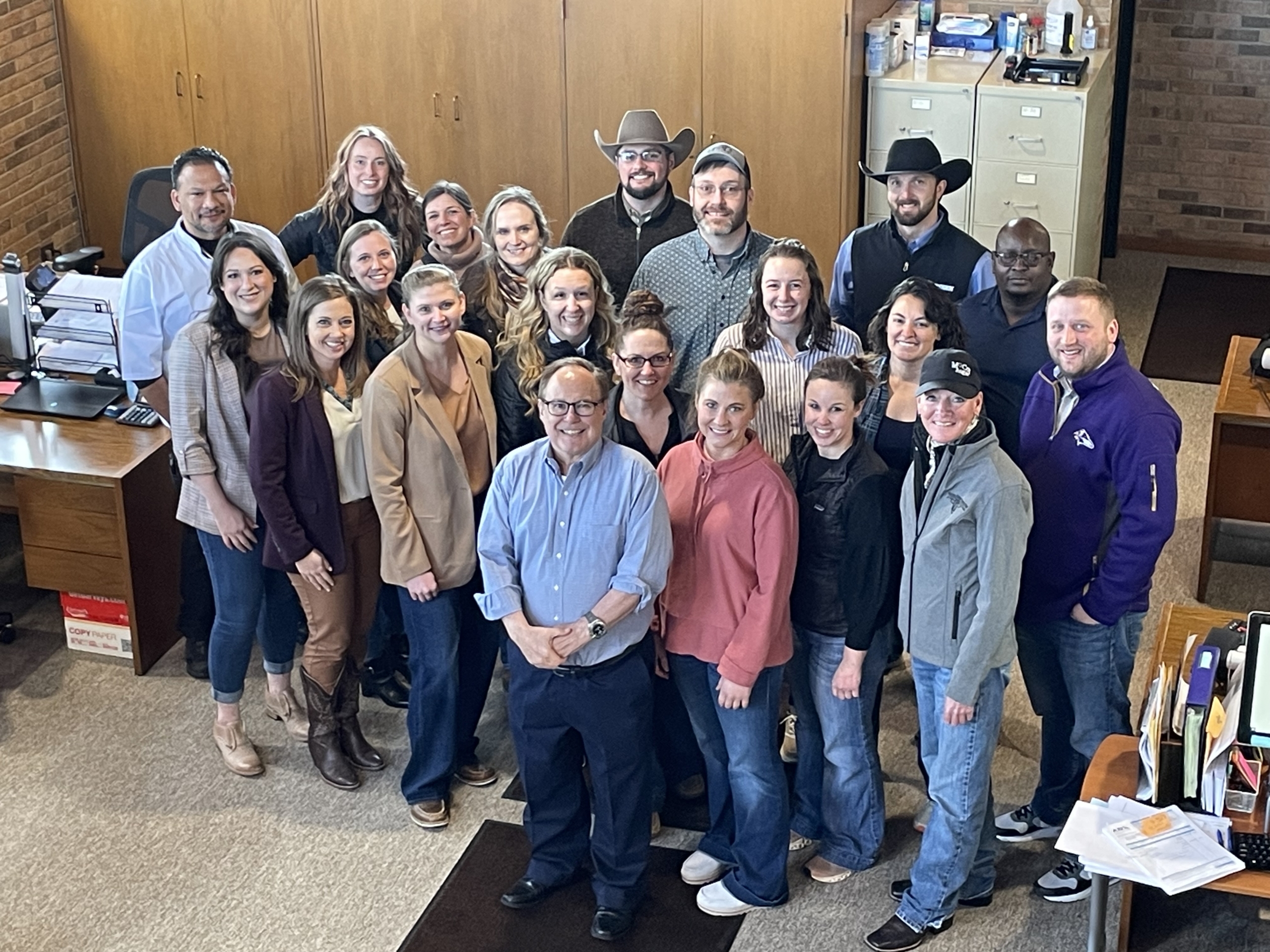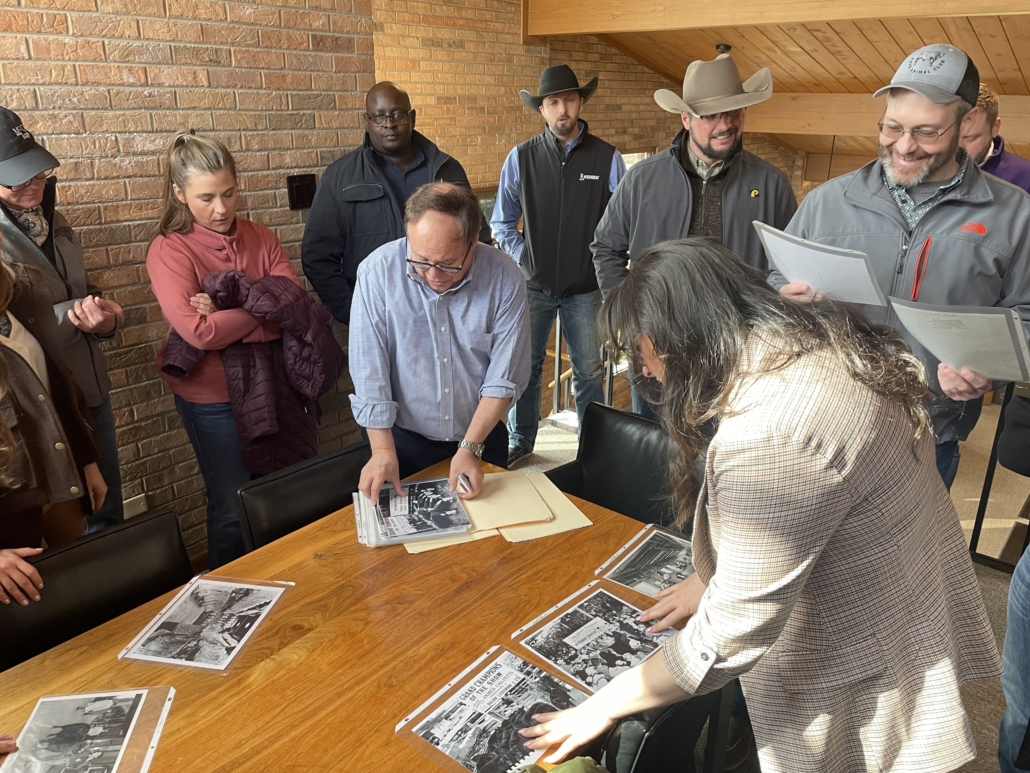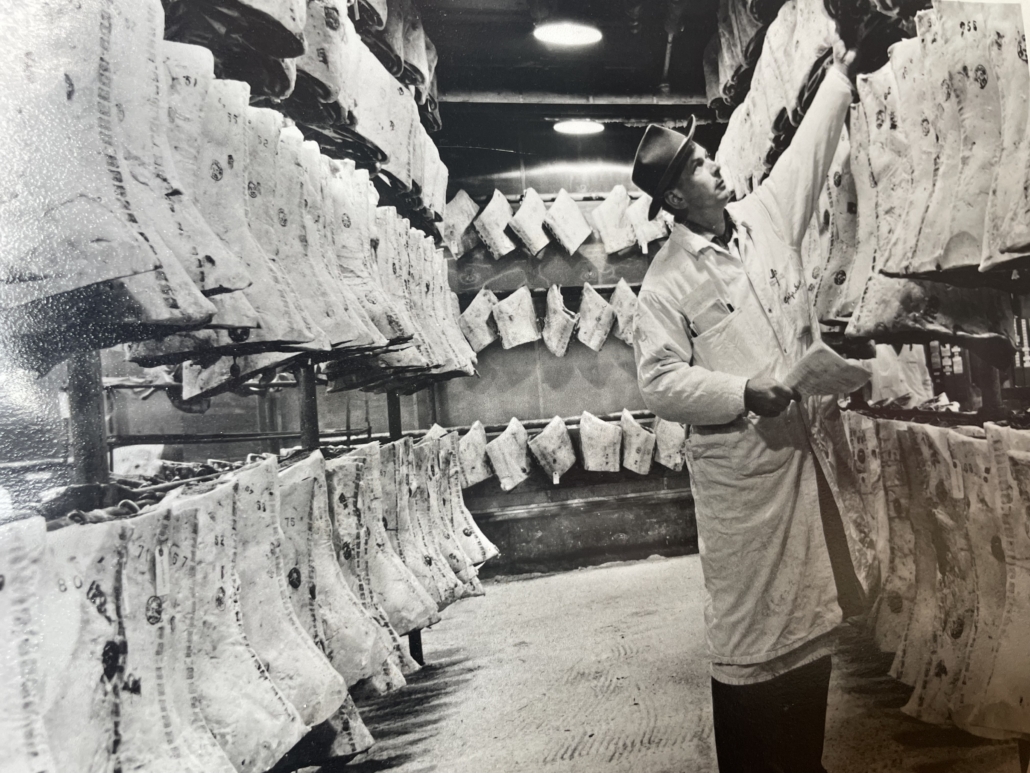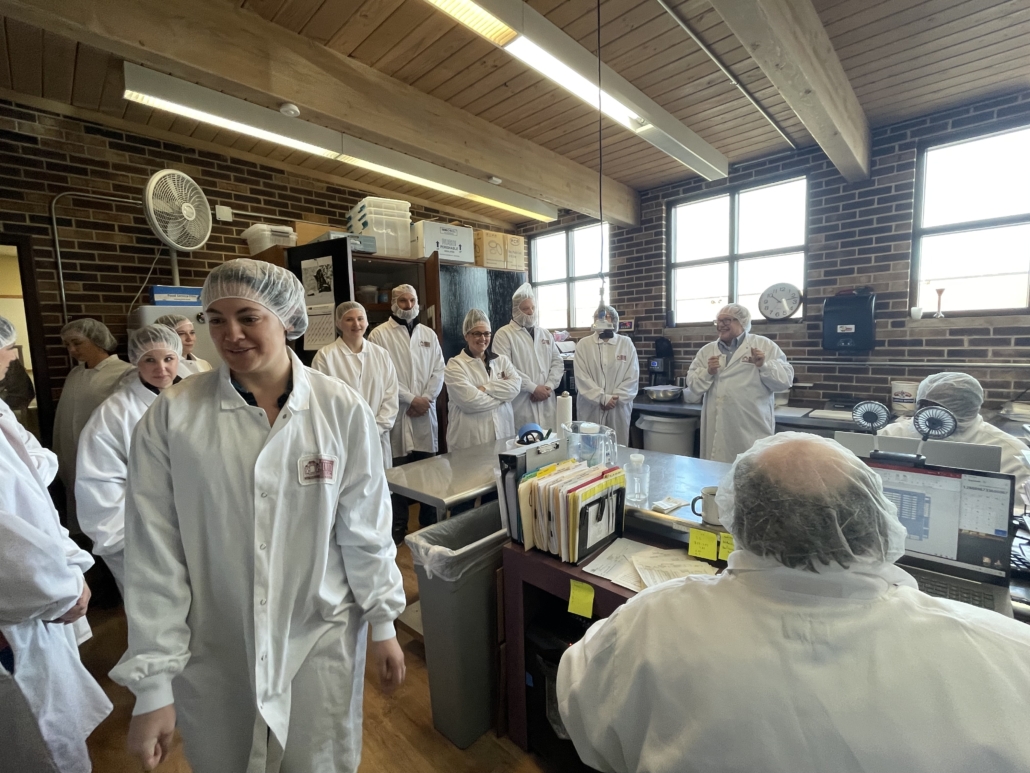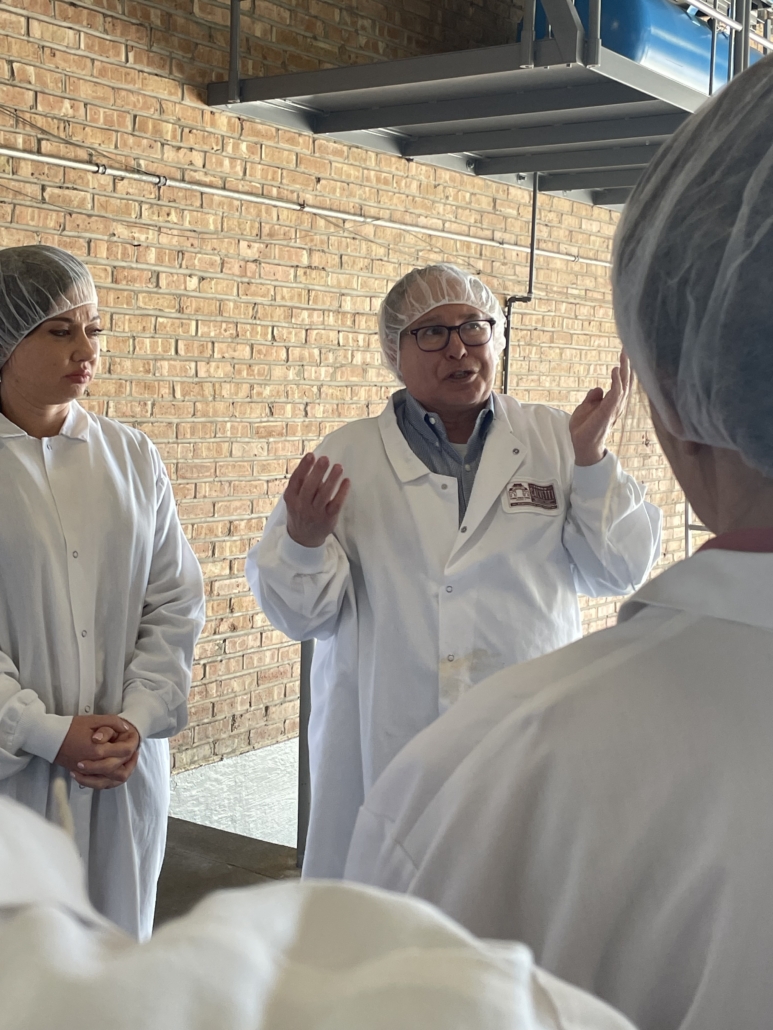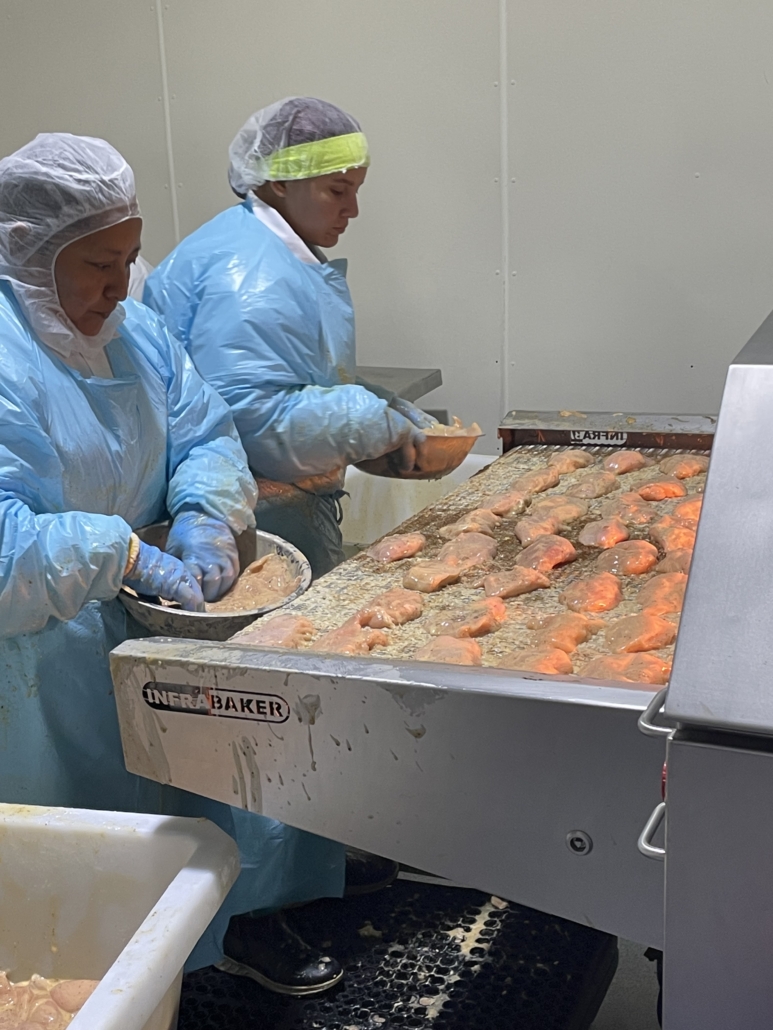Animal Agriculture Leaders Empower One Health Discussions Ahead of UN General Assembly
/in News /by morgan.young@animalagriculture.orgWhite papers, farm tours, and One Health leader collaborations to inform U.S. leaders for UN General Assembly meetings on AMR and stewardship in animal agriculture
Kansas City, Mo. (June 12, 2024) — The National Institute for Animal Agriculture (NIAA) has released the white paper from the 13th Annual Antibiotics Symposium – Thriving in a Changing Landscape. The White Paper provides a summary of the science-based information presented regarding the use of antibiotics in food-animals, public and environmental health implications, and the next steps of stewardship. Though antibiotic stewardship in human and livestock medicine will continue to play an important role, other focus areas emerged throughout the symposium. The intimate relationship between people and their pets presents an ideal opportunity to transfer antimicrobial resistance between animals and humans. These intimate relationships also build strong bonds, often resulting in the pursuit of medical interventions that mirror human medicine, including the use of high-powered antibiotics.
Symposium topics included an industry report on the current state of antibiotic stewardship from producer to processor to grocer, information on the latest antimicrobial stewardship and resistance research, the multi-dimensional aspects of antibiotic stewardship and AMR, regulatory updates, and One Health collaborations. True to the NIAA mission, the Symposium convened animal agriculture experts and allies in a collaborative setting to explore, discuss, learn, and develop knowledge that fosters interdisciplinary cooperation for the improvement and continuous progress of animal agriculture. The closing keynote, Dr. Karen Smith, speaker and independent consultant with decades of public health experience, left the attendees with this point to ponder, “The best and most effective policies are built through collaboration with those who will be most affected by the policy.”
NIAA serves as a contractor to the Cattlemen’s Beef Board and the Antibiotics Symposium is made possible in part by the Beef Checkoff. The 2023 Symposium program set the stage for two other collaborative efforts from NIAA happening in 2024. The Pork Checkoff is supporting a One Health pork tour in Minnesota that will convene veterinary, public health, and Centers for Disease Control and Prevention (CDC) leaders on a tour to multiple swine facilities to learn about biosecurity, stewardship practices, and more. The second convening will connect farmers and ranchers with CDC officials in Atlanta, GA prior to the UN General Assembly meeting on antimicrobial resistance (AMR). This meeting will support CDC delegates as they provide informed One Health information that includes perspectives and practical applications from experts and professionals in the animal agriculture sector.
To learn more about the upcoming 14th Annual Antibiotics Symposium to be held in Denver, CO at the Colorado State University SPUR Campus, November 19-21, 2024 or any of the One Health convenings, please contact Morgan Young, Director of Communications and Outreach for the National Institute for Animal Agriculture at morgan.young@animalagriculture.org.
###
About NIAA
NIAA is the leading resource for the animal agriculture industry and provides value to all stakeholders involved in providing safe and healthy food for the world. NIAA is a non-profit organization that is dedicated to providing programs to work towards providing solutions for disease, while promoting a safe and wholesome food supply and the best practices of environmental stewardship, animal health and well-being.
About the Beef Checkoff
The Beef Checkoff was established as part of the 1985 Farm Bill. The Checkoff assesses $1 per head on the sale of live domestic and imported cattle, in addition to a comparable assessment on imported beef and beef products. States may retain up to 50 cents on the dollar and forward the other 50 cents per head to the Cattlemen’s Beef Promotion and Research Board, which administers the national Checkoff program, subject to USDA approval.
Dates and Location of 14th Annual Antibiotics Symposium Announced
/in News /by morgan.young@animalagriculture.orgAnimal agriculture leaders from Cohort 3 begin their training in Chicago
/in News /by Morgan YoungCohort 3 of NIAA’s Advanced Training for Animal Agriculture Leaders launch their experiential leadership program
The third cohort of the National Institute for Animal Agriculture’s (NIAA) Advanced Training for Animal Agriculture Leaders completed their first in-person leadership training session in Chicago, Illinois.
In January, NIAA announced the selected participants in the third cohort of the Advanced Training for Animal Agriculture Leaders. During their time in Chicago, Dairy Management Inc. (DMI) hosted cohort participants as they explored the group’s strengths from CliftonStrengths, outlined their desired leadership experience and curriculum on the first day of the leadership training session. Kaitlin Briggs MBA, PhD, Vice President Animal Health & Sustainability Research at DMI spoke to the group about the organization and her role and the sustainability goals and progress in the dairy industry.
On the second day of the leadership session, Cohort members met Jamie Calvetti, president of Calvetti Meats and founder of Calvetti Culinary Creations. Calvetti Meats was established in Chicago in 1939 and Jamie is the second generation of owner management. The company specializes in custom food products, including ready-to-eat, sous vide and vacuum packaged ready-to-cook food products.
Midan Marketing’s Principal, Michael Uetz finished the day with Cohort members with a discussion about the latest protein research, current market trends, and consumer attitudes. Midan is an independent agency with an extensive knowledge of the meat industry and consumer insights.
“My expectations have expanded following our first gathering as Cohort 3,” said Hanna Robbins, Butterball, LLC and cohort member. “The opportunity to mesh with such a diverse, interdisciplinary group that is collectively passionate about all facets of agriculture is unique to many of us. I’m looking forward to further developing our relationships, conversations, and opportunities over the next 14 months and beyond.”
The third cohort of the Advanced Training for Animal Agriculture Leaders represents a range of agricultural sectors to advance animal agriculture’s role in today’s food system. Participants include Johnna Baller-Granville – Genus ABS, Ryan Bennett – U.S. Roundtable for Sustainable Poultry & Eggs and International Poultry Welfare Alliance, Kristi Block – North American Meat Institute, Sarah Coleman – The Kentucky Horse Council, Rose Digianantonio – State of Wyoming Livestock Board, Will Fiske – Neogen Genomics, Chelsea Good, JD – Livestock Marketing Association, Rita Harkless – Perdue Foods, Blaine Johnson – Texas Tech University School of Veterinary Medicine, Tanner King – Neogen Genomics, Ashley Kohls – Minnesota Turkey Growers Association, Jennifer Koziol – Texas Tech School of Veterinary Medicine, Rahul Kumar – Zoetis, Inc., Megan McCullough – North American Meat Institute, Emmanuel Okello – University of California, Davis, Kelli Payne – Oklahoma Cattlemen’s Foundation, Hanna Robbins – Butterball, Dakota Thomas – Professional Animal Auditor Certification Organization (PAACO), Jackson Tolle – United Producers, Inc., Hattie Webb – Centers for Disease Control and Prevention
To learn more about the leadership program and its sponsors, visit the Advanced Training for Animal Agriculture Leaders page of our website.
NIAA Selects Third Cohort for the Advanced Training for Animal Agriculture Leaders Program
/in News /by Morgan YoungThe third class participating in the National Institute for Animal Agriculture’s (NIAA) Advanced Training for Animal Agriculture Leaders has been selected and will convene for their first session in Chicago in February 2024.
NIAA established the leadership program in 2021 to provide an opportunity for animal agriculture leaders to gain next-level leadership and professional development training. What makes the Advanced Training for Animal Agriculture Leaders unique is that its curriculum and experience is co-designed by the leadership cohort and is specifically designed for the animal agriculture segment of the industry.
The 16-month program is sponsored by the United Soybean Board and Farm Credit and was created by NIAA to empower professionals in the early to midpart of their careers to build on previous leadership development experiences and collaborate with peers across the industry. The cohort attends five in-person meetings with additional virtual working sessions to focus on four areas of development: critical thinking, leadership development, connecting and relating skills, and operational excellence. A presentation of a group capstone project will complete Cohort 3’s leadership training at NIAA’s Annual Conference in April 2025.
“Part of NIAA’s mission is to foster collaboration and cooperation throughout the industry. This program was intentionally developed to build upon existing leadership experiences, so professionals advance their skills – specifically, collaboration,” said Eric Moore, NIAA Board Chairman. “It was important to me to participate in the inaugural cohort and it has been an enriching experience for me and my fellow leaders.”
There were more than 50 very capable applicants for the Advanced Training for Animal Agriculture Leaders. The third cohort represents 20 leaders in a diverse range of agricultural sectors to advance animal agriculture’s role in today’s food system. NIAA welcomes:
- Johnna Baller-Granville – Genus ABS
- Ryan Bennett – U.S. Roundtable for Sustainable Poultry & Eggs and International Poultry Welfare Alliance
- Kristi Block – North American Meat Institute
- Sarah Coleman – The Kentucky Horse Council
- Rose Digianantonio – State of Wyoming Livestock Board
- Will Fiske – Neogen Genomics
- Chelsea Good, JD – Livestock Marketing Association
- Rita Harkless – Perdue Foods
- Blaine Johnson – Texas Tech University School of Veterinary Medicine
- Tanner King – Neogen Genomics
- Ashley Kohls – Minnesota Turkey Growers Association
- Jennifer Koziol – Texas Tech School of Veterinary Medicine
- Rahul Kumar – Zoetis, Inc.
- Megan McCullough – North American Meat Institute
- Emmanuel Okello – University of California, Davis
- Kelli Payne – Oklahoma Cattlemen’s Foundation
- Hanna Robbins – Butterball
- Dakota Thomas – Professional Animal Auditor Certification Organization (PAACO)
- Jackson Tolle – United Producers, Inc.
- Hattie Webb – Centers for Disease Control and Prevention
To learn more about the program, it’s sponsors and how to participate in the next cohort, visit https://www.animalagriculture.org/leadership-program/.
Speakers Announced for NIAA’s 13th Annual Antibiotics Symposium in Atlanta
/in News /by Morgan YoungFarmers, ranchers, veterinarians, allied industry professionals, human health specialists and environmental experts will explore collaboration opportunities to derive One Health solutions for antimicrobial resistance and stewardship.
Kansas City, Mo. (October 5, 2023) — The National Institute for Animal Agriculture will host the 13th Annual Antibiotics Symposium in Atlanta, Georgia from November 7-9, 2023. This year’s theme for Symposium is Thriving in a Changing Landscape.
NIAA serves as a contractor to the Cattlemen’s Beef Board and the Antibiotics Symposium is made possible in part by the Beef Checkoff. This year’s Symposium program comes on the heels of NIAA’s Kentucky Farm Tour collaboration with Kentucky Cattlemen’s Association, Kentucky Pork Producers Association, Cattlemen’s Beef Board and the Centers for Disease Control and Prevention that served to bridge the gap between animal agriculture, human, and environmental health. This program is also made possible by Beef Farmers and Ranchers.
Symposium topics will include an industry report on the current state of antibiotic stewardship from producer to processor to grocer, information on the latest antimicrobial stewardship and resistance research, the multi-dimensional aspects of antibiotic stewardship and AMR, regulatory updates, One Health collaborations, and more. Confirmed speakers include:
- Ken Opengart – Tyson Foods,
- Alex Rinkus – Health for Animals,
- Chris Gambino – The Breakthrough Institute,
- Terry Lehenbauer – University of California Davis,
- Collette Kaster – Professional Animal Auditor Certification Organization
- Andy Bishop – Cattlemen’s Beef Board,
- Chelsey Shivley – USDA APHIS,
- Catherine Rockwell – USDA FSIS,
- Susan Jennings – EPA,
- Karen Smith – Association of State & Territorial Health Officials (ASTHO),
- Cameron Bess, PhD – Biomedical Advanced Research & Development Authority (BARDA),
and more. See the full list of speakers here.
In addition to the Symposium program, NIAA will be leading a tour on Tuesday, November 7 before the opening reception. The Centers for Disease Control and Prevention (CDC) will host a tour limited to 30 people. More details will be released at a later date.
To register for the 13th Annual Antibiotics Symposium and book your hotel stay in Atlanta, please visit www.AnimalAgriculture.org. Hotel room block and early bird rates for registration are active until October 15, 2022. For assistance, please contact Morgan Young, Director of Communications and Outreach for the National Institute for Animal Agriculture at morgan.young@animalagriculture.org.
###
About NIAA
NIAA is the leading resource for the animal agriculture industry and provides value to all stakeholders involved in providing safe and healthy food for the world. NIAA is a non-profit organization that is dedicated to providing programs to work towards providing solutions for disease, while promoting a safe and wholesome food supply and the best practices of environmental stewardship, animal health and well-being.
About the Beef Checkoff
The Beef Checkoff was established as part of the 1985 Farm Bill. The Checkoff assesses $1 per head on the sale of live domestic and imported cattle, in addition to a comparable assessment on imported beef and beef products. States may retain up to 50 cents on the dollar and forward the other 50 cents per head to the Cattlemen’s Beef Promotion and Research Board, which administers the national Checkoff program, subject to USDA approval.
Cohort Two Tours Portland’s Agriculture Space
/in Blog, News /by Morgan YoungThe second cohort of the National Institute for Animal Agriculture’s (NIAA) Advanced Training for Animal Agriculture Leaders participated in their second in-person leadership training session in Portland, OR.
In January, NIAA announced the second cohort of the Advanced Training for Animal Agriculture Leaders. This leadership training course is sponsored by the United Soybean Board and was created by NIAA to empower animal agriculture professionals to strengthen previous leadership development experiences and collaborate with peers across the industry.
During their time in Portland, Cohort 2 participants visited Beef Northwest Feeders, Threemile Canyon Farms, Olympia Provisions, and the Port of Portland Grain Terminal.
Beef Northwest Feeders
Beef Northwest began in the 1870’s as Wilson Cattle Company and has developed into a people-focused company where they care for cattle and produce healthy beef for consumers while supporting our customers and playing a role in economic sustainability in agriculture.
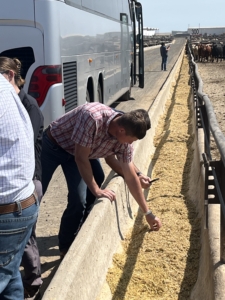
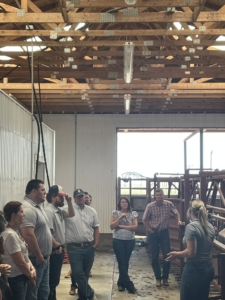
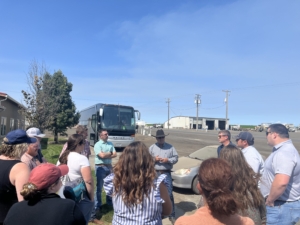
Threemile Canyon Farms
Threemile Canyon Farms started farming in 1999 with the intent to make it a special place that demonstrates our respect for our people, community, and natural resources. They were the 2020 U.S. Dairy Sustainability Awards recipient for Outstanding Dairy Sustainability.
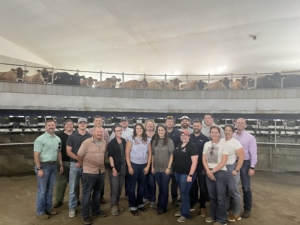
Olympia Provisions
Olympia Provisions is an American meat and restaurant company that produces artisan charcuterie based out of Portland, Oregon. Their mission is to redefine American charcuterie and developing a Pacific Northwest, small family Farmer Network so we can consistently source regenerative, humanely-raised pork.
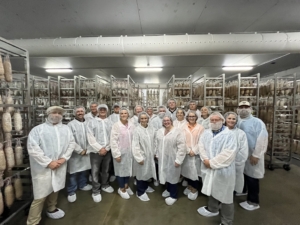
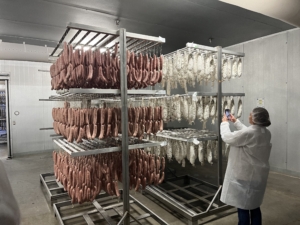
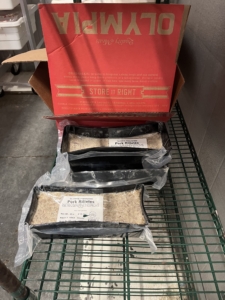
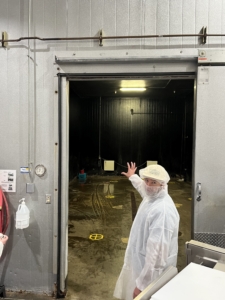
Port of Portland Grain Terminal.
At the port of Portland, at Terminal 5 you’ll find 159 acres of a rapid-handling grain elevator and potash exporting facility. On average, 2-4 million tons of grain is shipped through Portland annually.
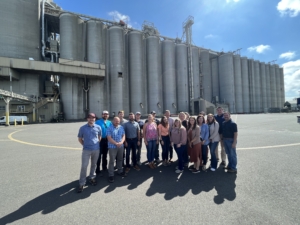
After the tours, cohort members took the opportunity to work on their small-group leadership capstone project that will be presented at Annual Conference in April 2024.
The second cohort of the Advanced Training for Animal Agriculture Leaders represents a range of agricultural sectors to advance animal agriculture’s role in today’s food system. Participants include Tressa Lacy, TransOva Genetics; Jared Bramer, Kemin Animal Nutrition & Health – North America; Amanda Butterfield, North American Meat Institute; TJ Flax, DTN; Trisha Klement, Vitek Lange PLLC; Phillip Lancaster, Kansas State University; Miriam Martin, North American Meat Institute; Chandler Mulvaney, National Cattlemen’s Beef Association; Jake Renner, American Gelbvieh Association; Jennette Rietcheck, Norbrook; Kayla Rink, Dairy Farmers of America; Grant Sardella, ABS Global; Jennifer Schmitt, Institute on the Environment, University of Minnesota; Austin Snook, Merck Animal Health; Sarah Thomas, The Ohio State University; Brandon Treichler, Treichler Consulting Services; Stephanie Ward, NC State University; Jonathan White, United Producers; Tim Bardole, United Soybean Board; and Shannon Ellis, United Soybean Board.
Learn more about the leadership program by visiting https://www.animalagriculture.org/leadership-program/.
National Institute for Animal Agriculture Launches Policy Review Panels
/in News /by Morgan Young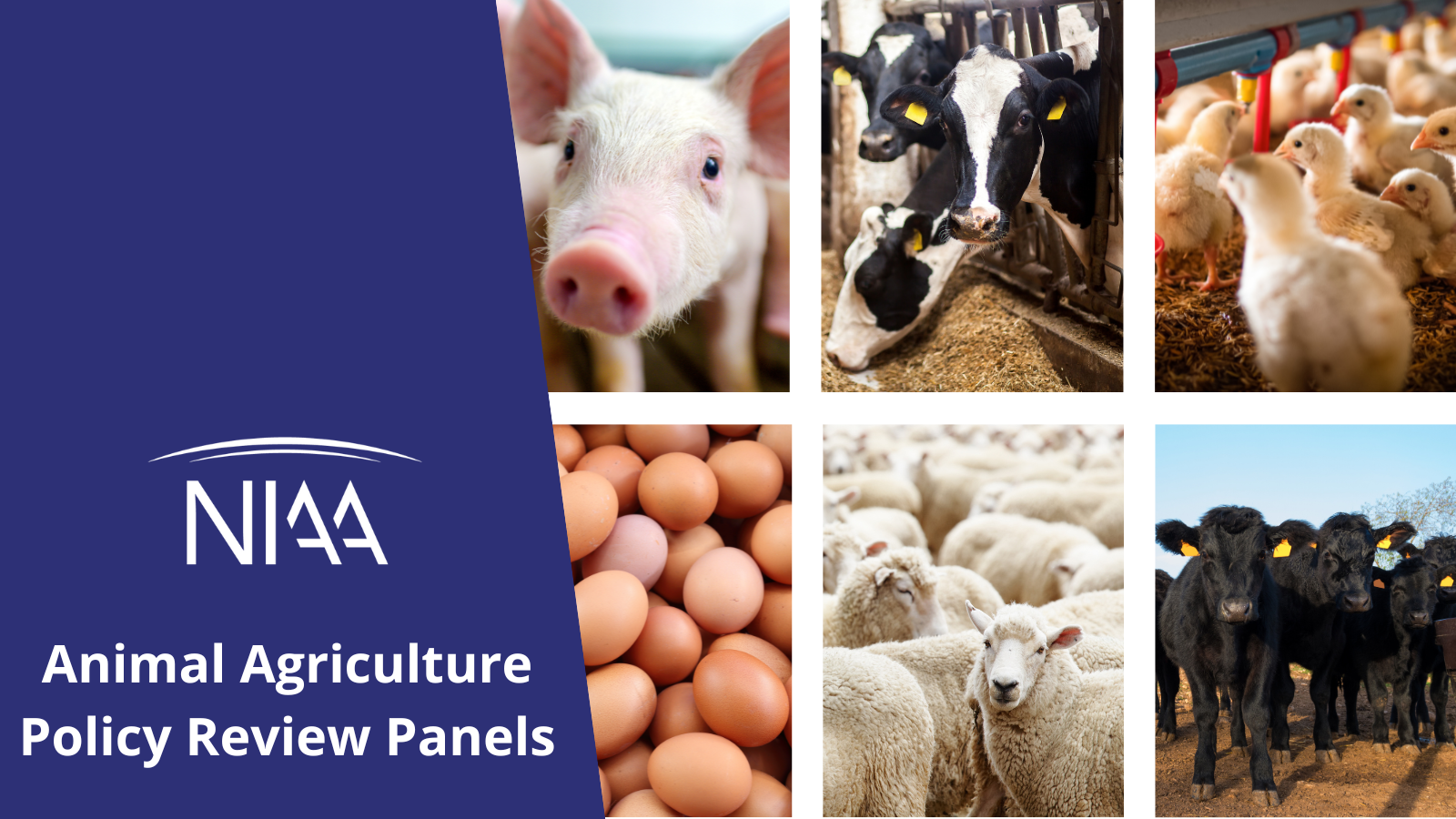
NIAA will offer unbiased, third-party reviews to organizational policies related to animal agriculture.
The National Institute for Animal Agriculture (NIAA) has launched a new program to review organizational policies and positions specific to animal agriculture as a third-party reviewer.
As the protein value chain works to continuously improve, new animal agriculture policies and positions are often adopted by organizations. Access to third-party subject matter experts through NIAA ensures the latest science and information for practical animal handling and husbandry practices are applied. Review panels span all species and sectors of the animal agriculture value chain.
As a convener of interdisciplinary leaders to explore, discuss, and learn about specific topics and issues, NIAA’s mission is put into action through this program. NIAA Animal Agriculture Policy Review Panels are assembled upon request by animal agriculture stakeholders to review a specific organizational policy or position statement. The Policy Review Panels are comprised of subject matter experts (SMEs) and serve to:
- Determine if the policy follows the latest scientific research;
- Assess if the policy encourages continuous improvement;
- Review the policy for practical application;
- Evaluate if the policy is balanced to allow for species, regional, cultural, and other differences in production practices and models; and,
- Offer feedback and counsel that the requesting organization can implement into the policy.
NIAA provides the panel of SMEs with the proposed policy text with no distinguishing language or branding to prevent bias. Feedback from the panel is aggregated into a final report by NIAA staff and includes the credentials of the SMEs. NIAA does not share confidential review panel reports. However, reports may be shared by the requesting organization if they choose.
“We look forward to continuing to serve the animal agriculture community as policies and positions on a variety of animal agriculture topics are developed or revised,” said Eric Moore, NIAA board chairman and director of technical services – North America of Norbrook, Inc. “A NIAA Policy Review Panel just completed its first report, and the requesting organization shares the practical feedback was ‘well received’ and will be applied to their final position statement.”
To learn more about NIAA’s Animal Agriculture Policy Review Panels, contact NIAA’s executive director J.J. Jones JJ.Jones@AnimalAgriculture.org or visit www.AnimalAgriculture.org.
NIAA Provides mRNA Resources to the Animal Agriculture Industry
/in News /by Morgan YoungThe National Institute for Animal Agriculture (NIAA) hosted a webinar on July 21 with industry professionals and stakeholders to provide resources communicating about the use of mRNA technology in animal agriculture.
Misinformation has been shared on social media claiming humans can become vaccinated against COVID-19 by consuming animal protein from livestock treated with mRNA vaccines. The emerging issue was presented at NIAA’s Annual Conference in April 2023 during the Animal Health Emergency Management Council meeting. To compound the misinformation, mRNA vaccines have recently been the target of some state legislative bills.
NIAA quickly assembled a working group of experts from across animal agriculture to develop communication support materials regarding the use of mRNA technology in animal agriculture. Working group leaders include:
- American Association of Swine Veterinarians
- American Farm Bureau Federation
- American Veterinary Medical Association
- Animal Agriculture Alliance
- Livestock Marketing Association
- Merck Animal Health
- Missouri Farm Bureau
- National Institute for Animal Agriculture
- National Pork Board
- National Pork Producers Council
- North American Meat Institute
- Zoetis
The webinar hosted nearly 100 interested stakeholders and presented an information brief and infographic that is now available for animal agriculture stakeholders to use.
“NIAA works to serve animal agriculture stakeholders by convening leaders across the supply chain and connecting them with resources,” said J.J. Jones, NIAA executive director. “With this latest emerging issue, it’s important to know the facts about a complex topic and then communicate it simply and clearly. Our leaders are hopeful our animal agriculture stakeholders find this resource valuable.”
To access the mRNA information brief and infographic, please visit the resources page at the NIAA website. To learn more about becoming more involved in NIAA through membership or partnership, contact NIAA’s executive director J.J. Jones.

###
NIAA is the leading resource for the animal agriculture industry and provides value to all stakeholders involved in providing safe and healthy food for the world. NIAA is a non-profit organization that is dedicated to providing programs to work towards providing solutions for disease, while promoting a safe and wholesome food supply and the best practices of environmental stewardship, animal health and well-being.
NIAA Graduates Animal Agriculture Leaders
/in News /by Morgan YoungThe first cohort of the Advanced Training for Animal Agriculture Leaders completed the 16-month program.
The inaugural class of the National Institute for Animal Agriculture’s (NIAA) Advanced Training for Animal Agriculture Leaders completed their 16-month leadership training program at NIAA’s Annual Conference.
The leadership training course is sponsored in part by the United Soybean Board and was created by NIAA to empower animal agriculture professionals to strengthen previous leadership development experiences and collaborate with peers across the industry. The inaugural cohort began their training in January 2022 and participated in multiple group and one-on-one virtual and in-person sessions, including Sacramento, CA; Kansas City, MO; and Alexandria, VA.
The inaugural cohort encompassed a range of agricultural sectors to advance animal agriculture’s role in today’s food system. Participants included:
- Rebecca Barnett, National Cattlemen’s Beef Association
- Tera Barnhardt, Animal Welfare Consulting & Research, LLC
- Pierce Bennett, Minnesota Farm Bureau
- Kaitlyn Briggs, Dairy Management, Inc.
- Ryan Goodman, Beef Runner and Certified Angus Beef
- Todd Hanten, Hanten’s Dairy, Inc.
- Katherine Harrison, Harrison Farms
- Michelle Hiscocks, Iowa State University Department of Animal Science
- Madison Hopcia, Upstate Niagra Cooperative
- Josh Luth, Schreiber Foods
- Karaline Mayer, Hill’s Pet Food
- Eric Moore, Norbrook, Inc.
- Hayley Springer, Pennsylvania State University
- Reginald Strickland, Strickland Farming Group
The final cohort session featured small-group capstone projects that were presented at NIAA’s Annual Conference in April.
“The NIAA Leadership Cohort is beyond what I imagined and has been a challenging and rewarding experience. You are able to plan your own experiences, have unique opportunities, network and travel. I have loved meeting likeminded individuals from all different sectors of animal agriculture, networking, learning together and helping each other along the way. Travelling to different areas of the country to see the various perspectives and practices of agriculture has been really enjoyable. NIAA’s cohort is one of the few that lets you plan your experiences and is geared towards what you are interested in growing in and highly recommend participating if you are looking to grow in your profession and in your understanding of agriculture,” said Madison Simmons Hopcia, Upstate Niagara Cooperative, Inc. and inaugural cohort member.
NIAA will open nominations for the third cohort in October. To learn more about the program, its sponsors, and how to participate in the next cohort, visit https://www.animalagriculture.org/leadership-program/.
Sponsors
Platinum
ASTHO
Cattlemen’s Beef Board
Farm Credit
Farm Journal
Merck Animal Health
National Pork Board
USDA-APHIS
Gold
Norbrook Inc
Silver
ABS Global
Kentucky Beef Council
Kentucky Pork
Virbac
Bronze
Animal Health International
Boehringer Ingelheim
Creekstone Farms
Dairy Farmers of Wisconsin
Datamars
IMI/Where Food Comes From
Kemin
Kinder Ground
Livestock Marketing Association
Phibro Animal Health
Shearwell
Tyson Foods
Our Vision
NIAA is the leading resource for the animal agriculture industry and provides value to all stakeholders involved in providing safe and healthy food for the world.


